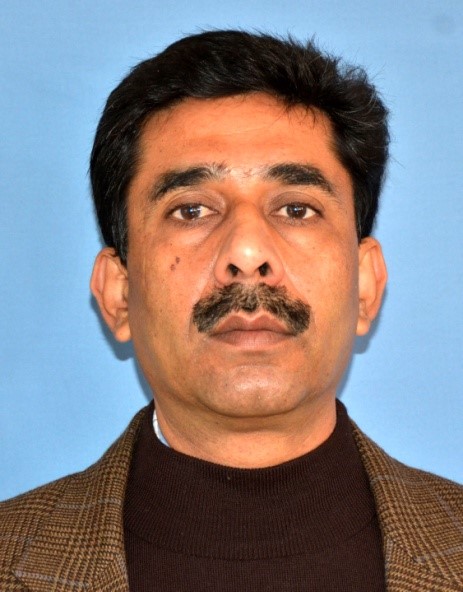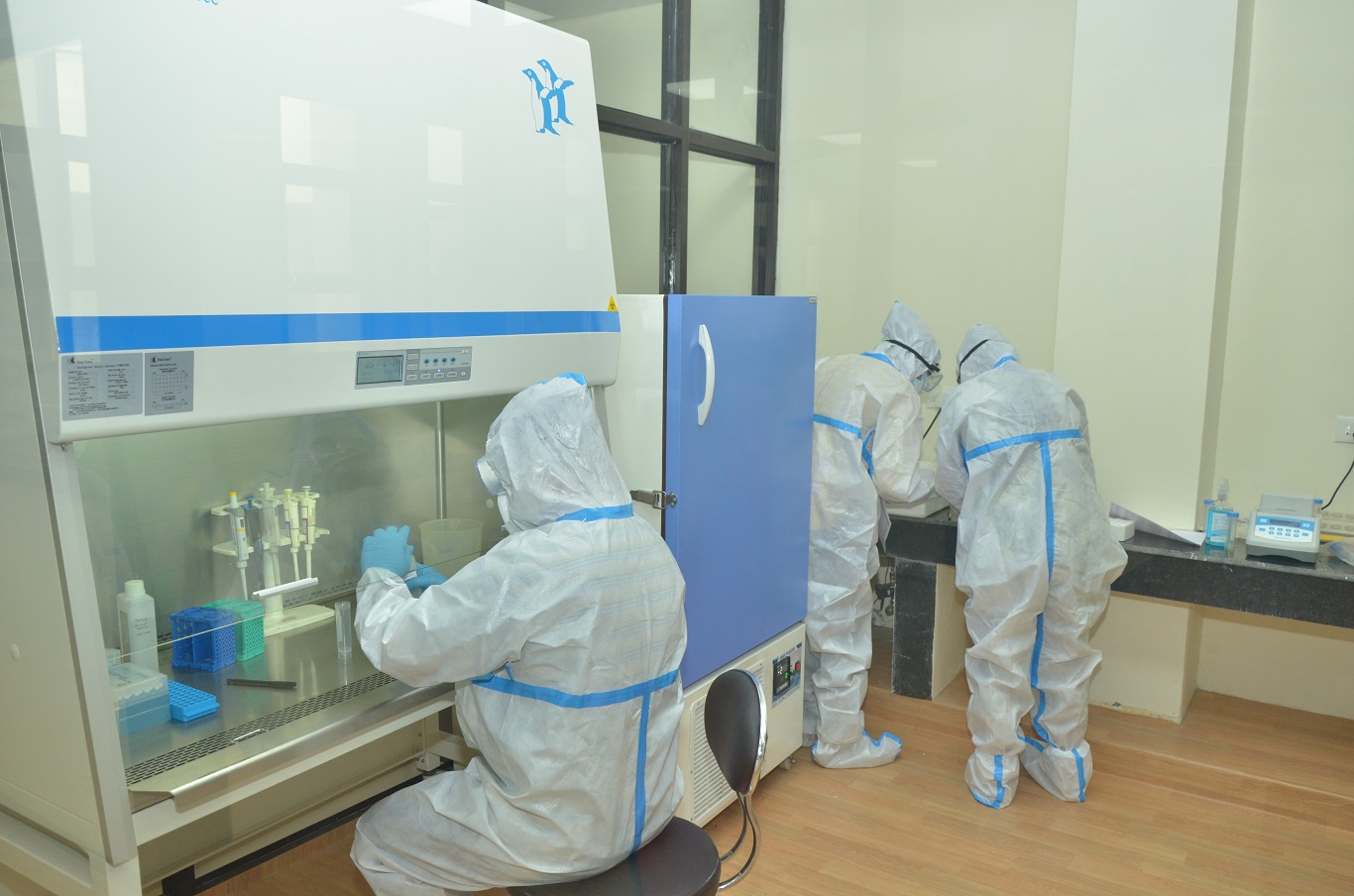College of Animal Biotechnology
Know About the College
The 'College of Animal Biotechnology' is a constituent college of the 'Guru Angad Dev Veterinary and Animal Sciences University' and is situated on the main campus of the University at Ludhiana. The erstwhile 'Post-Graduate Institute of Veterinary Education and Research (PGIVER)' was upgraded to 'School of Animal Biotechnology' in 2010. The school was further upgraded to the existing 'College of Animal Biotechnology' in 2019 with an objective to focus on research and teaching programs. The college aims towards directing the research to the needs of the farmers in the field of animal sciences by promoting translational research in the area of genomics, proteomics, bioinformatics, vaccinology, diagnostics, molecular biology, stem and cell biology.
The college offers a graduate program B.Tech. (Biotechnology) with 30 seats and post graduate programs viz. M.V.Sc. (Animal Biotechnology) / M.Sc. (Biotechnology) and 'M.Sc. (Biotechnology) with specialization in Animal Biotechnology' with a total of 17 seats and Ph.D. (Animal Biotechnology)/ Ph.D. (Biotechnology) with an intake capacity of 4 seats for students with bachelor degree in Biotechnology/Medical/Life Sciences/Biochemistry/Microbiology/Molecular Genetics/ B.F.Sc. The duration of the graduate program is for 4 years; the Masters program for 2 years, and the Ph.D. program for 3 years.
The college is also striving to conduct translational research in the various fields of biotechnology having direct or indirect implications on animals, particularly livestock. The college harbors numerous laboratories which are well equipped with sophisticated equipment to work in various fields of biotechnology and life sciences.
Mandate
- To undertake teaching, research, and training/extension in various facets of animal biotechnology, genomics, bioinformatics, microbial and environmental biotechnology.
- To generate scientific expertise and human resources trained for catering to institutional / industrial research and development requirements.
- To develop specialized and state-of-the-art laboratory facilities for research in the cutting-edge areas of biotechnology relevant to veterinary and allied sciences.
- To identify and characterize genes implicated in growth, production, reproduction, as well as stress and diseases.
- Harnessing omics and computational biotechnology in genetic improvement of farm animals.
- Development of molecular and serological diagnostics including point-of-care tests (POCTs), and new generation vaccines.
- To utilize stem and cell biology for enhancing lactation performance and regenerative therapy.
Goals
- To develop rapid point-of-care (POC) diagnostics with improved sensitivity and specificity for detection of infectious and non-infectious diseases.
- To develop improved, multi-component vaccines for economically important diseases of animals.
- To identify genome-wide markers for early and accurate selection for economically important traits, disease resistance, and parentage determination of animals.
- To facilitate research on stem cells for regenerative therapy in livestock.
- To develop and disseminate artificial intelligence and IoT driven, farmer-friendly technologies for smart data recording and precision farming.
Dean, College of Animal Biotechnology

Dr. Suresh Kumar Sharma
Address: Dean, College of Animal Biotechnology, Guru Angad Dev Veterinary and Animal Sciences University, Ludhiana
Email: deancoabt@gadvasu.in
Call: +91-161-2553356, 2553357
Brief Introduction
Dr. Suresh Kumar Sharma, took the additional charge of Dean, College of Animal BioTechnology at Guru Angad Dev Veterinary & Animal Sciences University, Ludhiana.
Former Dean/ Directors
|
S. No. |
Name |
Duration on the post |
Date of Retirement |
Photograph |
|
1. |
Dr. G.S. Brah |
01-02-2012 to 30-11-2013 As Director, School of Animal Biotechnology |
30-11-2013 |
|
|
2. |
Dr. Ramneek |
03-12-2013 to 06-10-2020 As Director, School of Animal Biotechnology |
--- |
|
|
3. |
Dr. YS Malik |
07-10-2020 to 15-04-2024 As Director, School of Animal Biotechnology |
--- |
|
Academic Facilities
- The College of Animal Biotechnology has five lecture halls equipped well with modern audio-visual teaching aids including LED projectors, computer podiums, and smart displays.
- The college also has one committee room with a seating capacity for 40+ individuals, well equipped with up-to-date presentation facilities with video conferencing, broadband connectivity, air conditioning, and furnishing.
- The college has one mini-auditorium with a sitting capacity for 100+ individuals, well equipped with up-to-date presentation facilities with broadband connectivity, air conditioning, and furnishing.
- The college also has one library which has books (paperback/hardcover >354 and e-Books >22), meeting the requirements of UG, PG and Ph.D students. The thesis of the students of college are available in the college library.
Research Facilities
The College of Animal Biotechnology has the following laboratories:
- Molecular Diagnostics and Vaccinology Laboratory
- Cell and Molecular Biology Laboratory
- Animal Stem Cells Laboratory
- Leptospira Laboratory
- Animal Genomics Laboratory
- Proteomics and Metabolomics Laboratory
- Centralized Research Laboratory
Some of the specialized equipments in laboratories
Real Time PCR
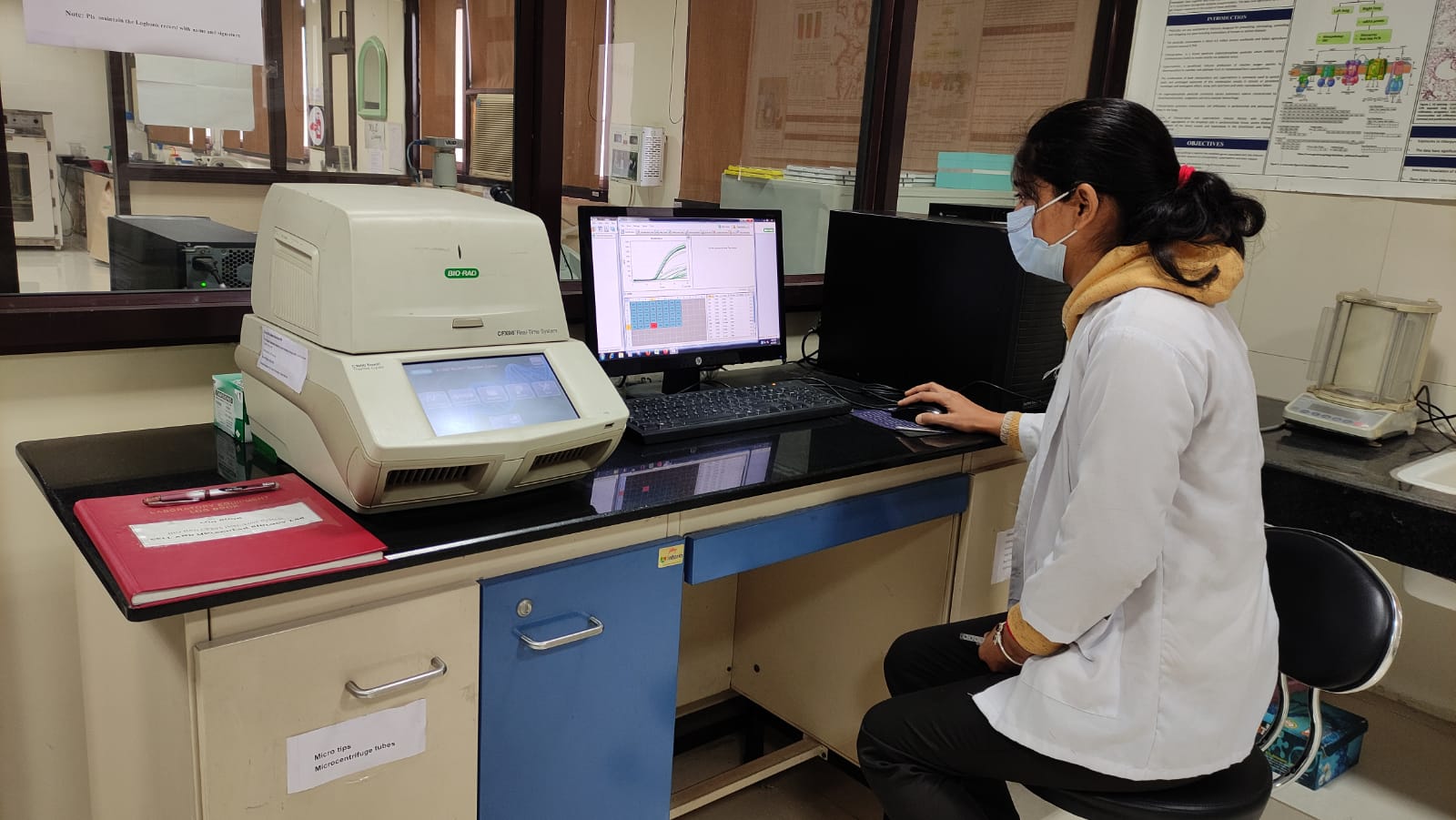
PCR Thermocycler
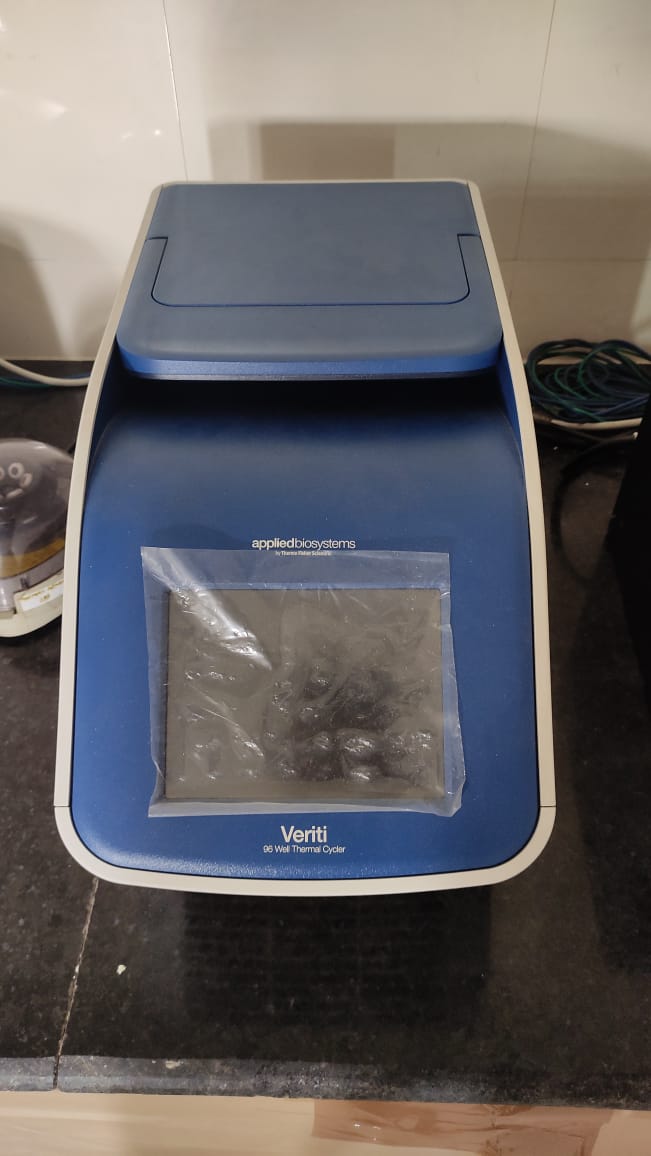
NanoDrop One
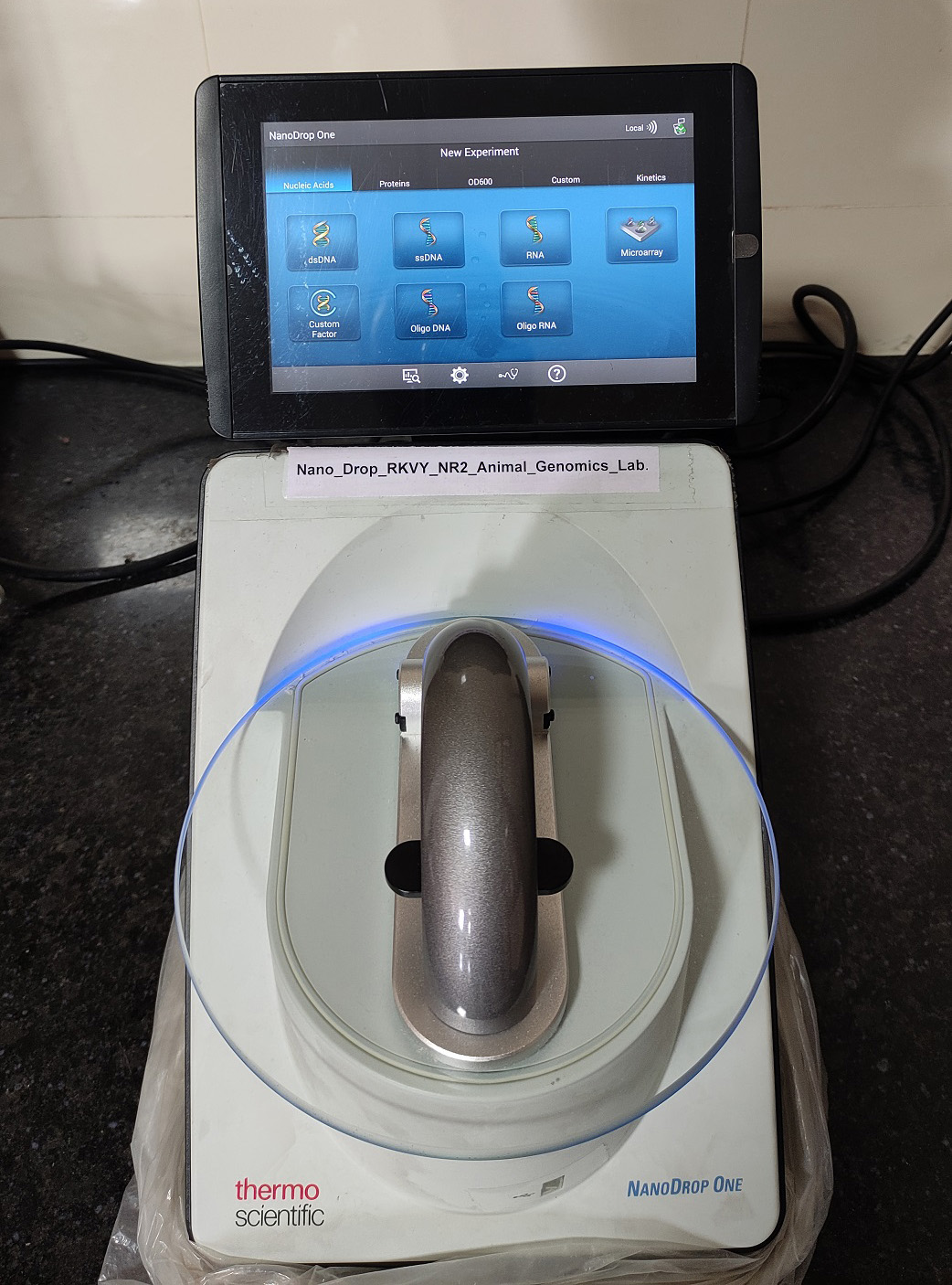
Plate Reader and Hybrid Plate reader with Chemilumiuscence
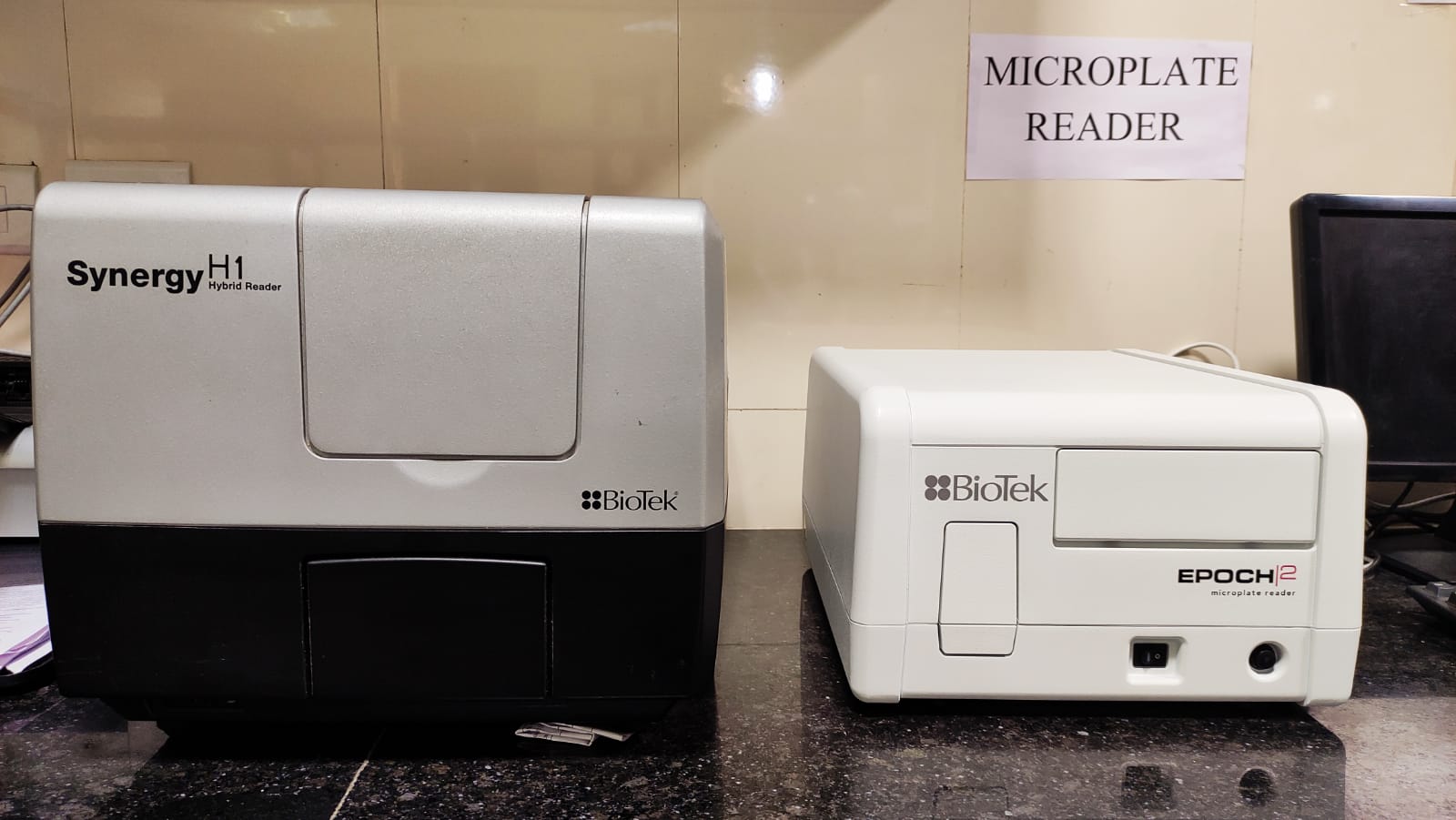
Dark Field Microscope
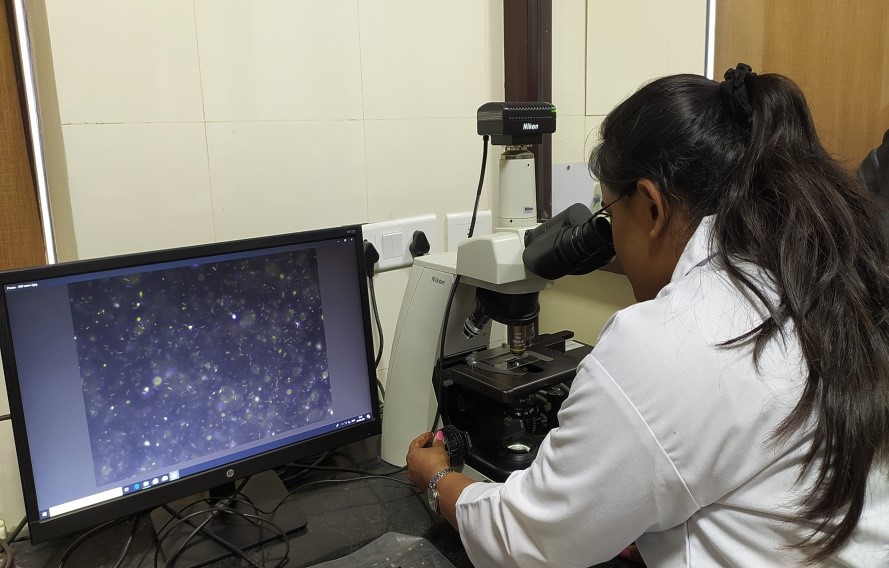
Inverted Microscope with Imaging System and Fluorescent Assembly
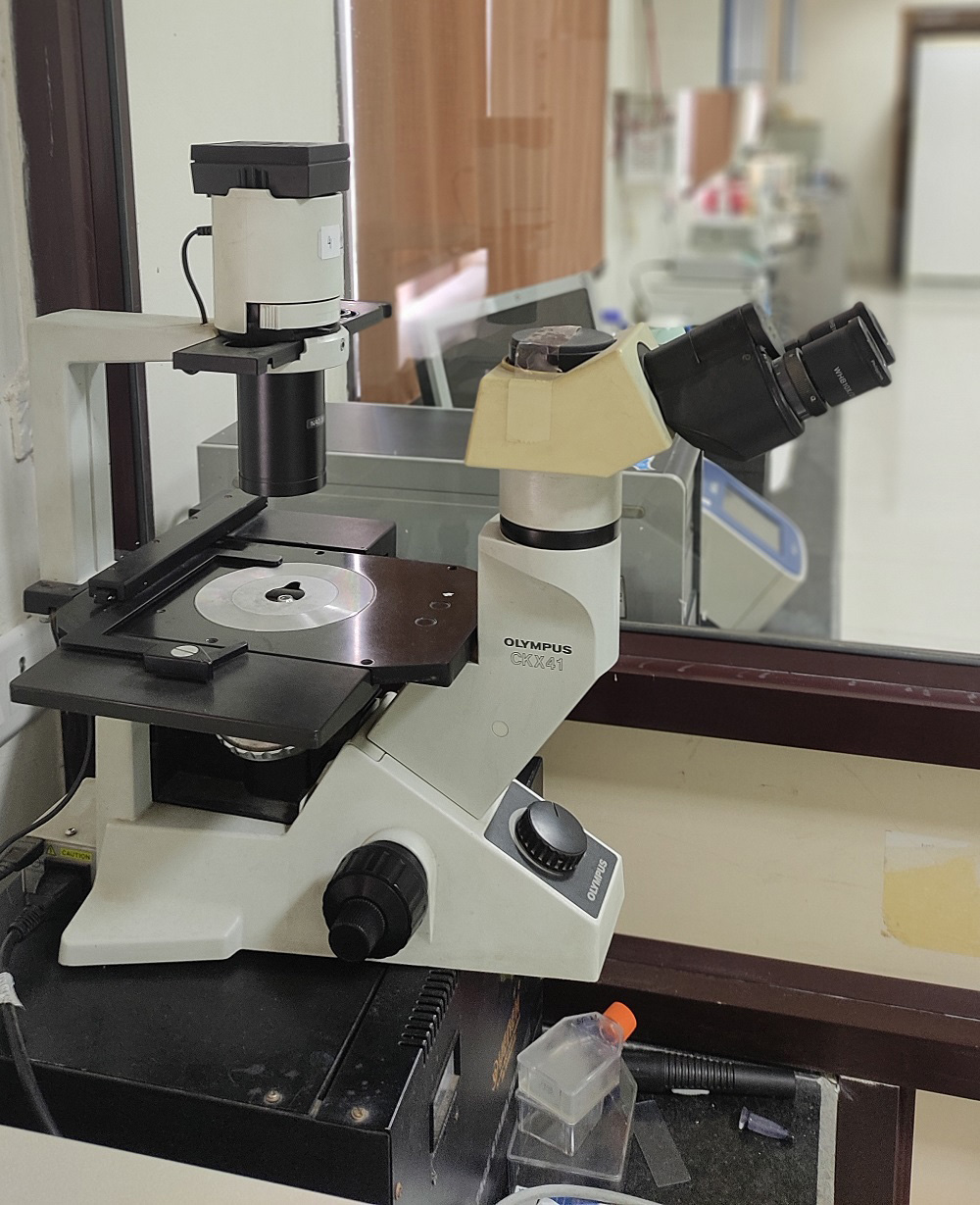
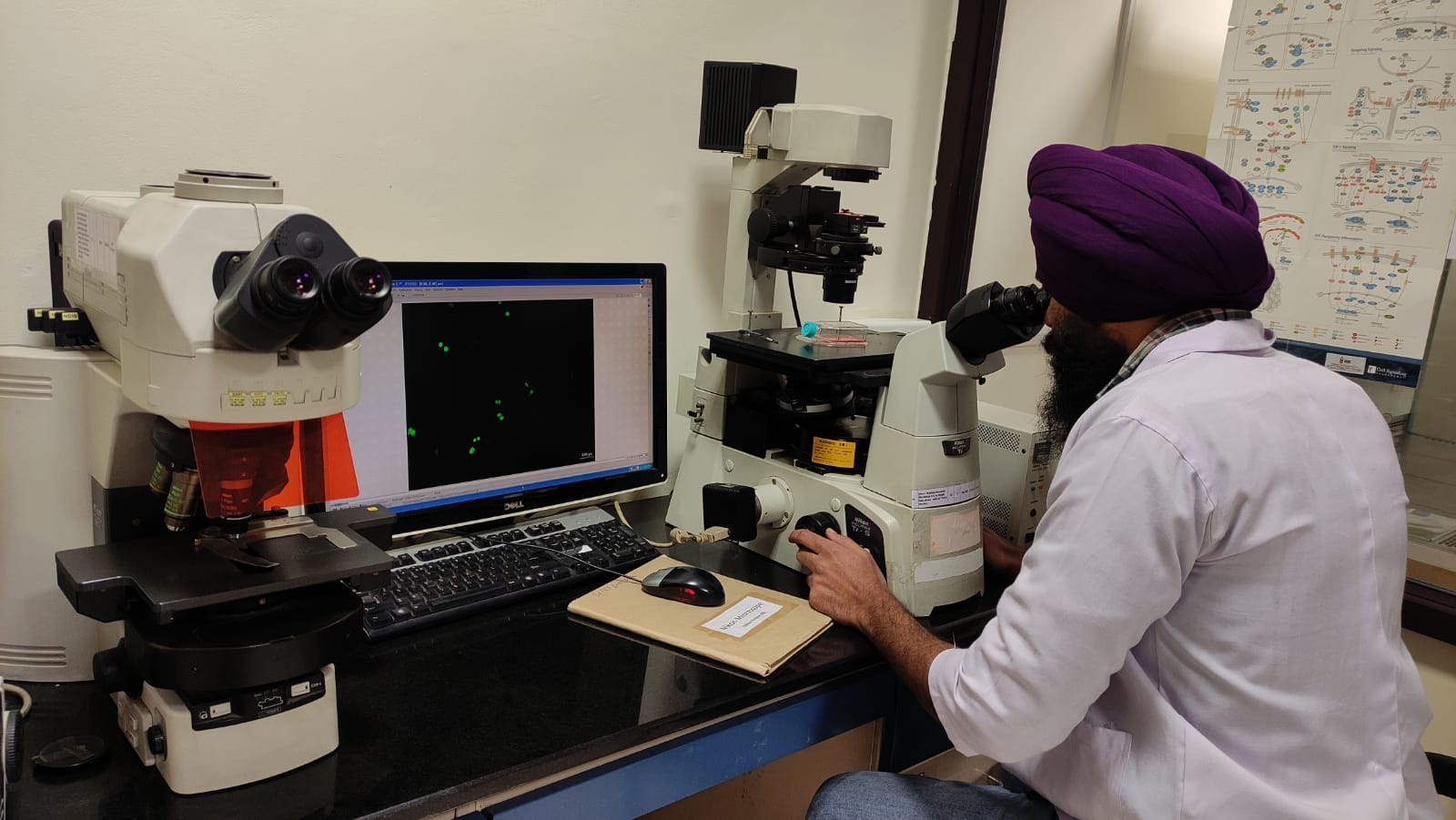
Gel Documentation systems
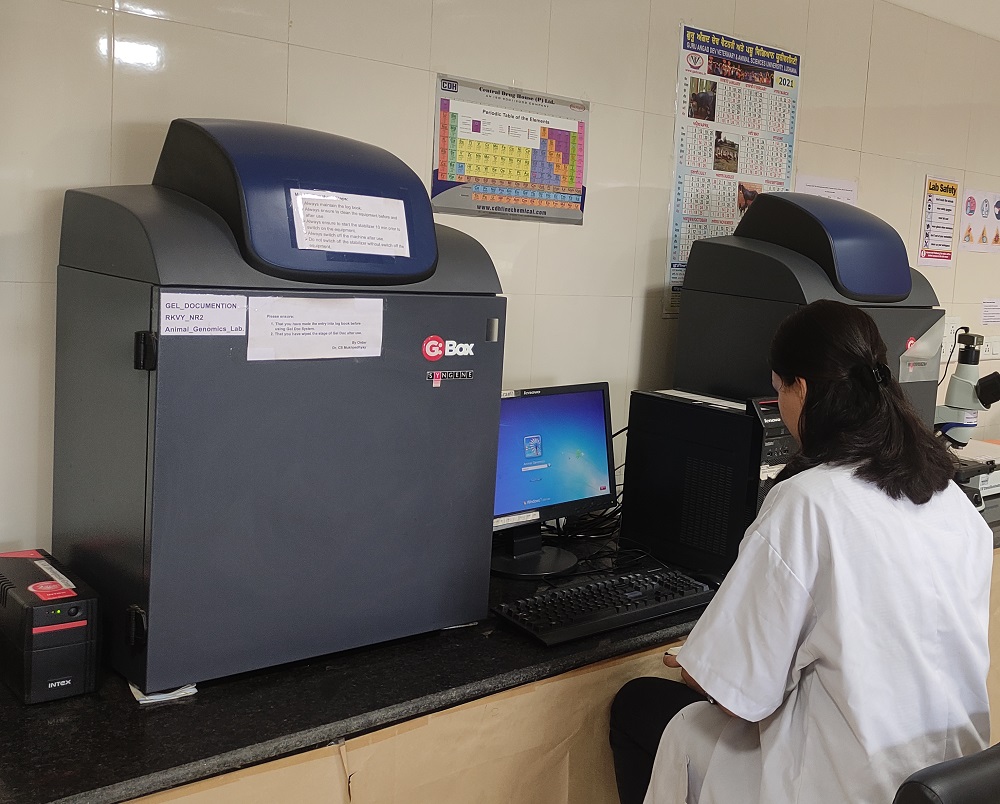
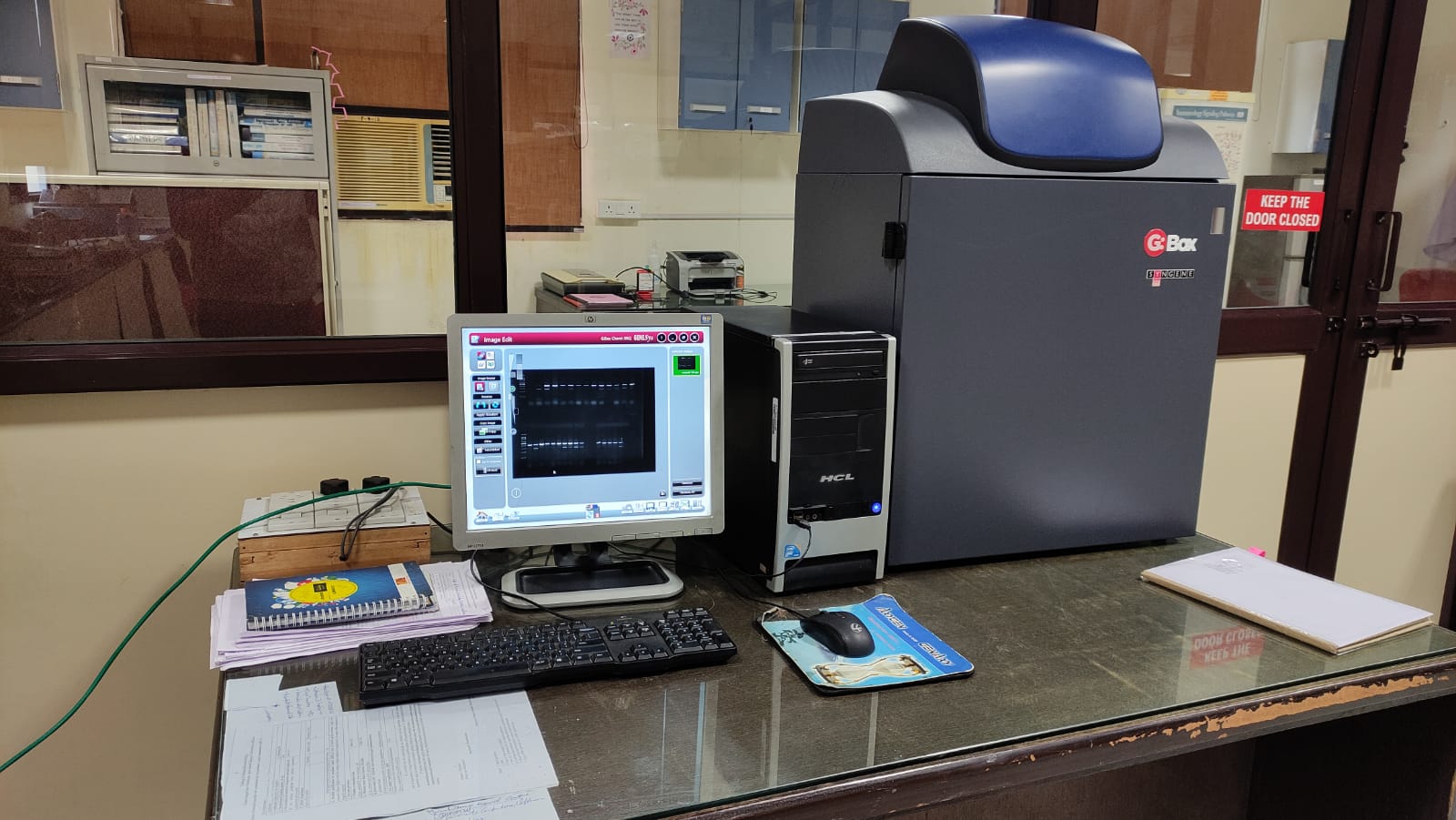
Refrigerated Centrifuge
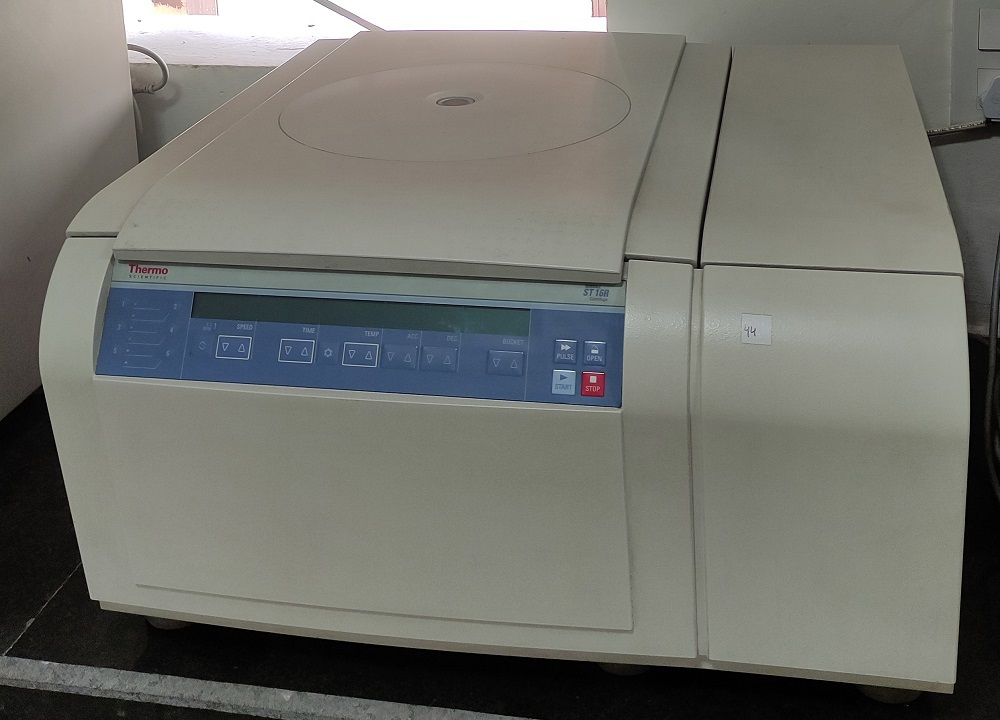
Micro Ultracentrifuge
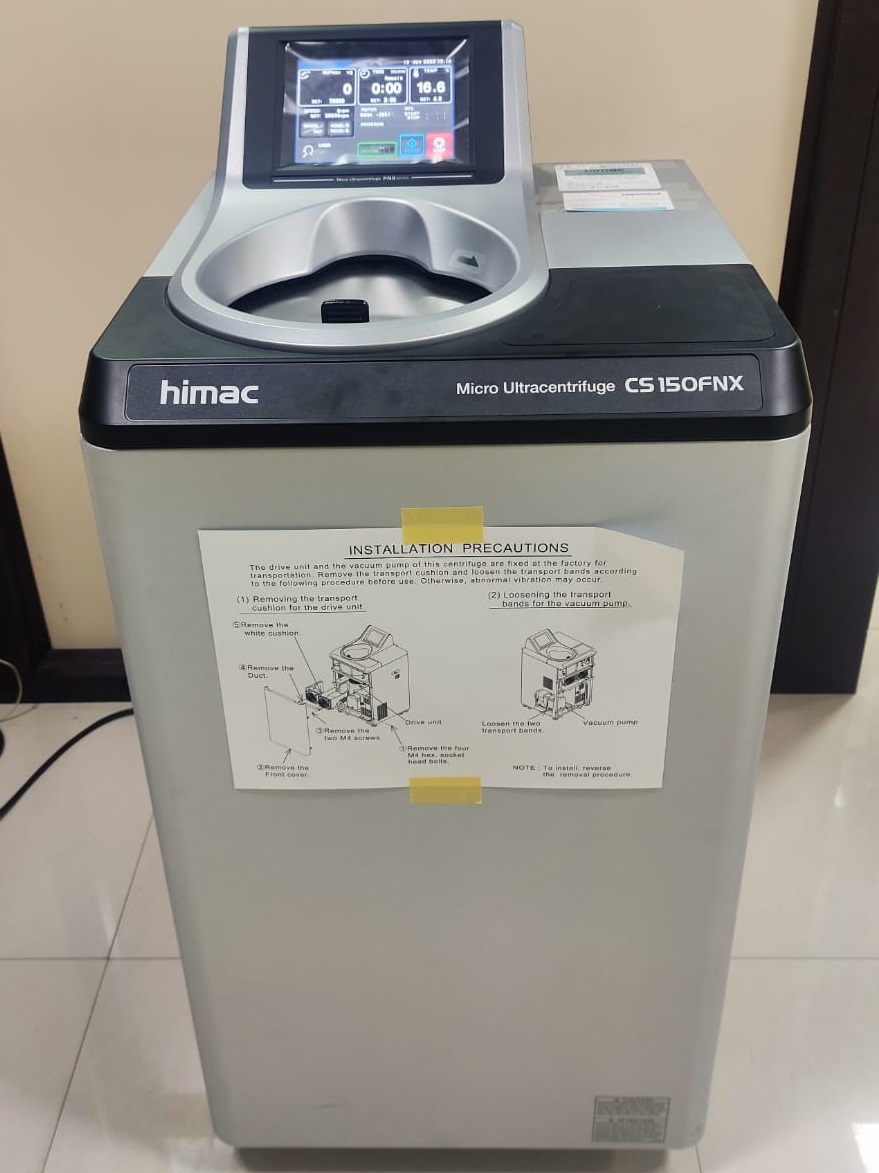
Rotary-Microtome with dispensing system
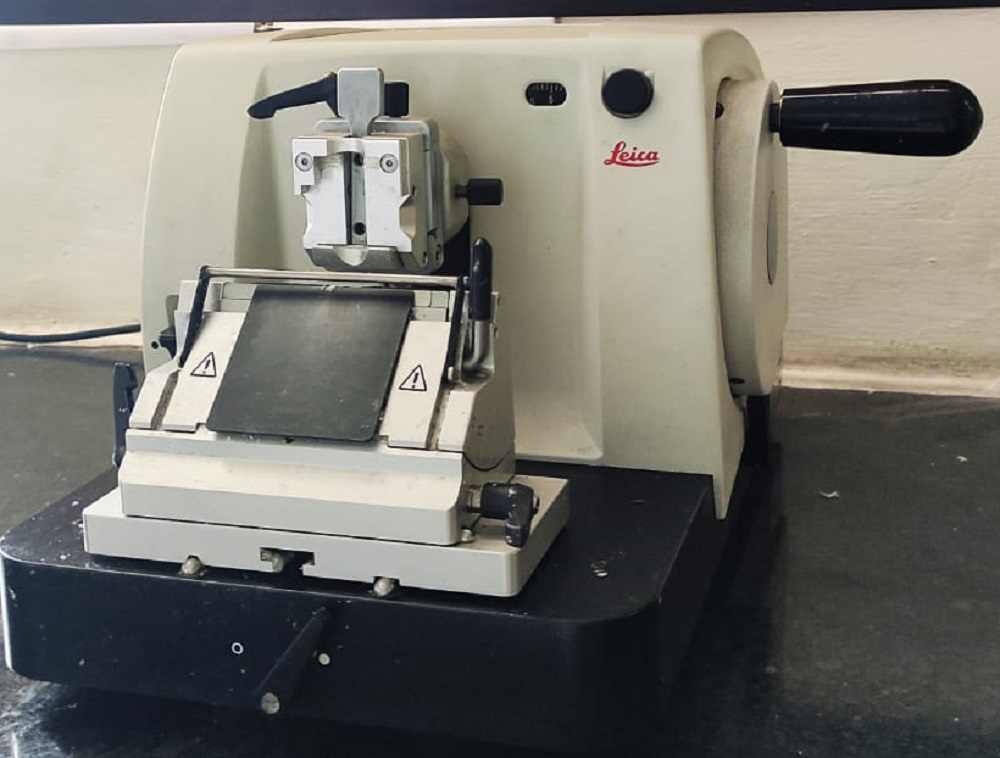
Bio Safety Cabinets (Class III --01, Class-II--04)
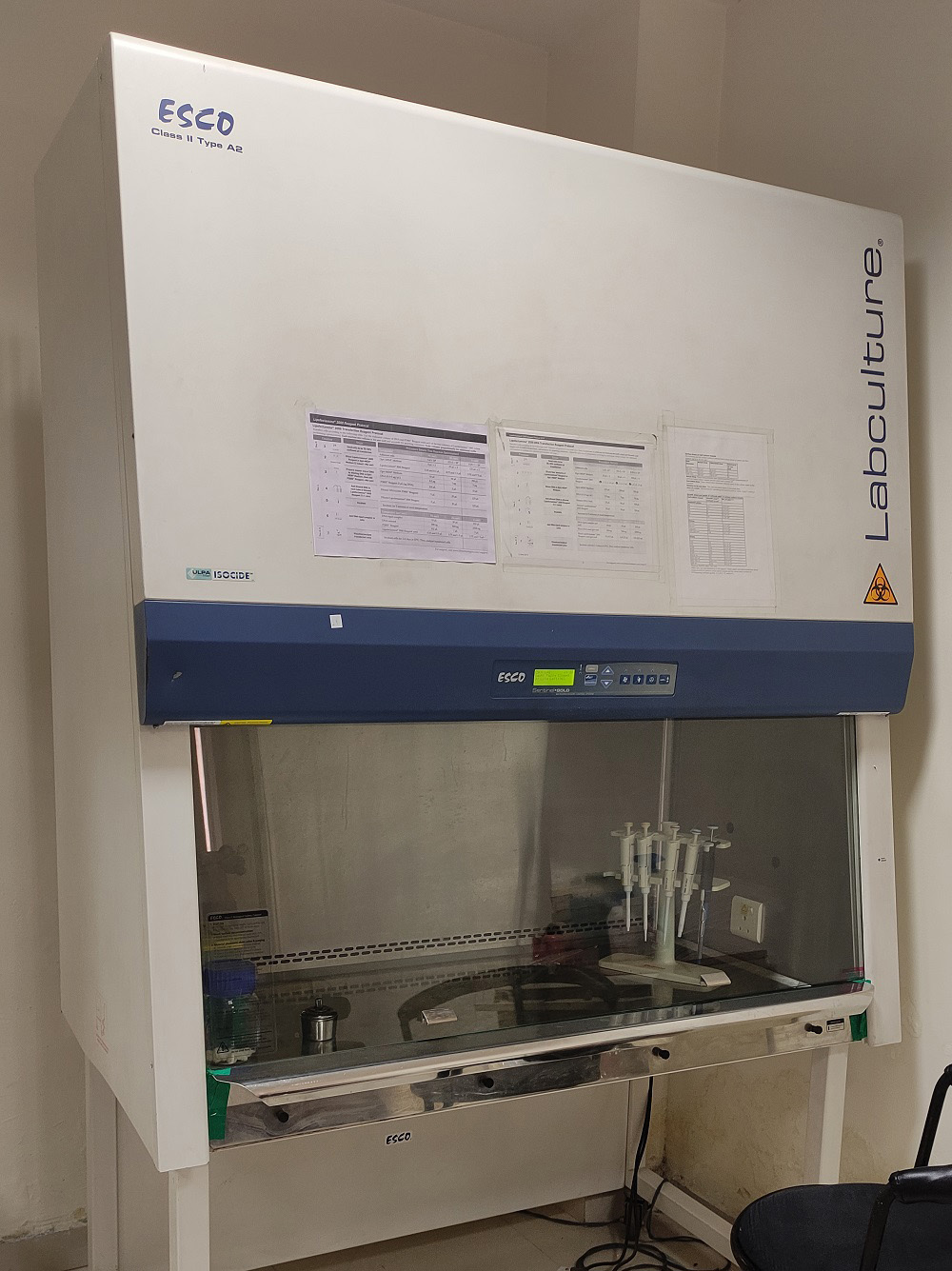
Bio Safety Lab (Class II)
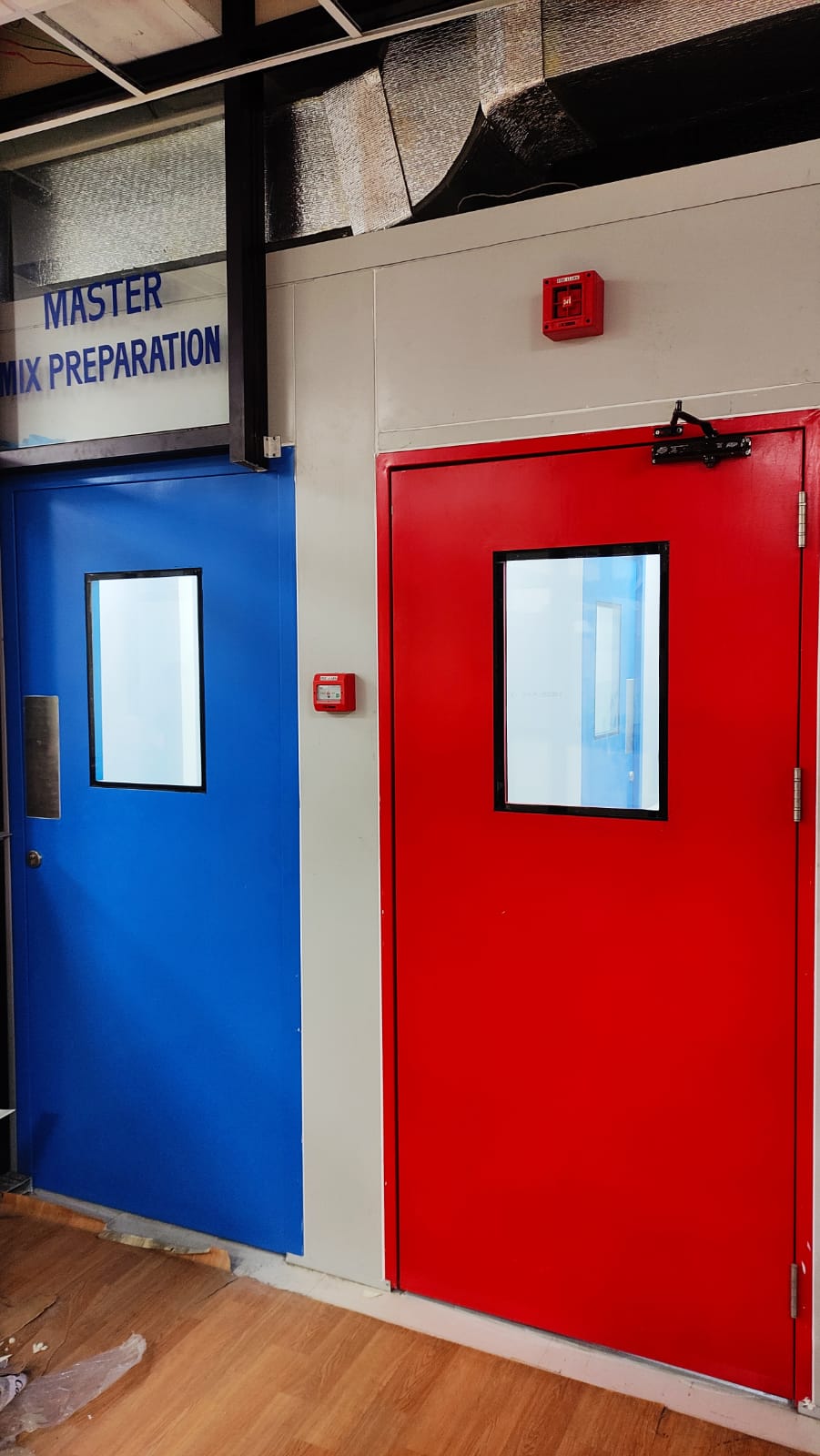
Cryo-preservation and multiple Deep Freezing (-80ºC & -20ºC) Facilities
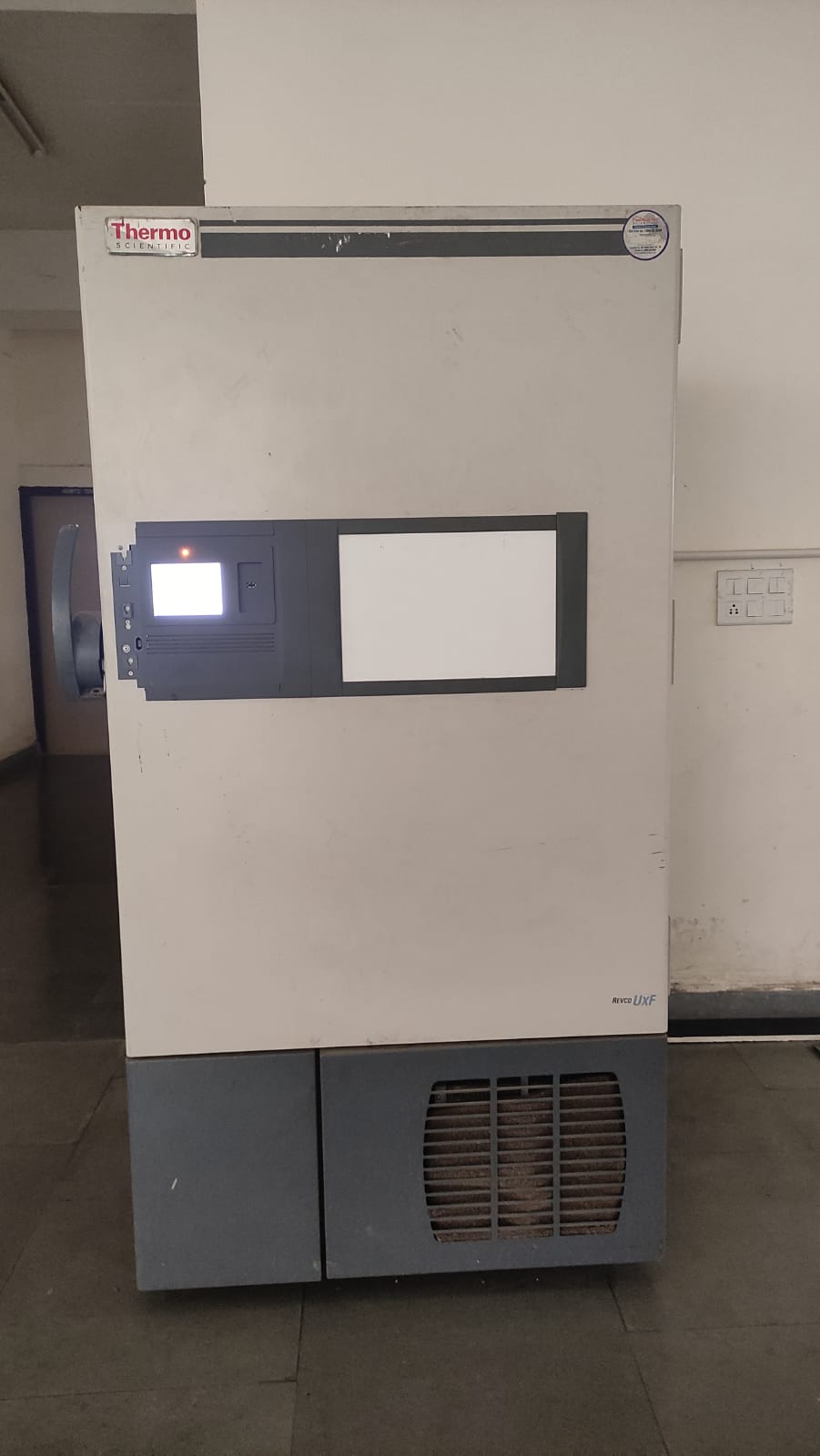
Millipore Water Purification System
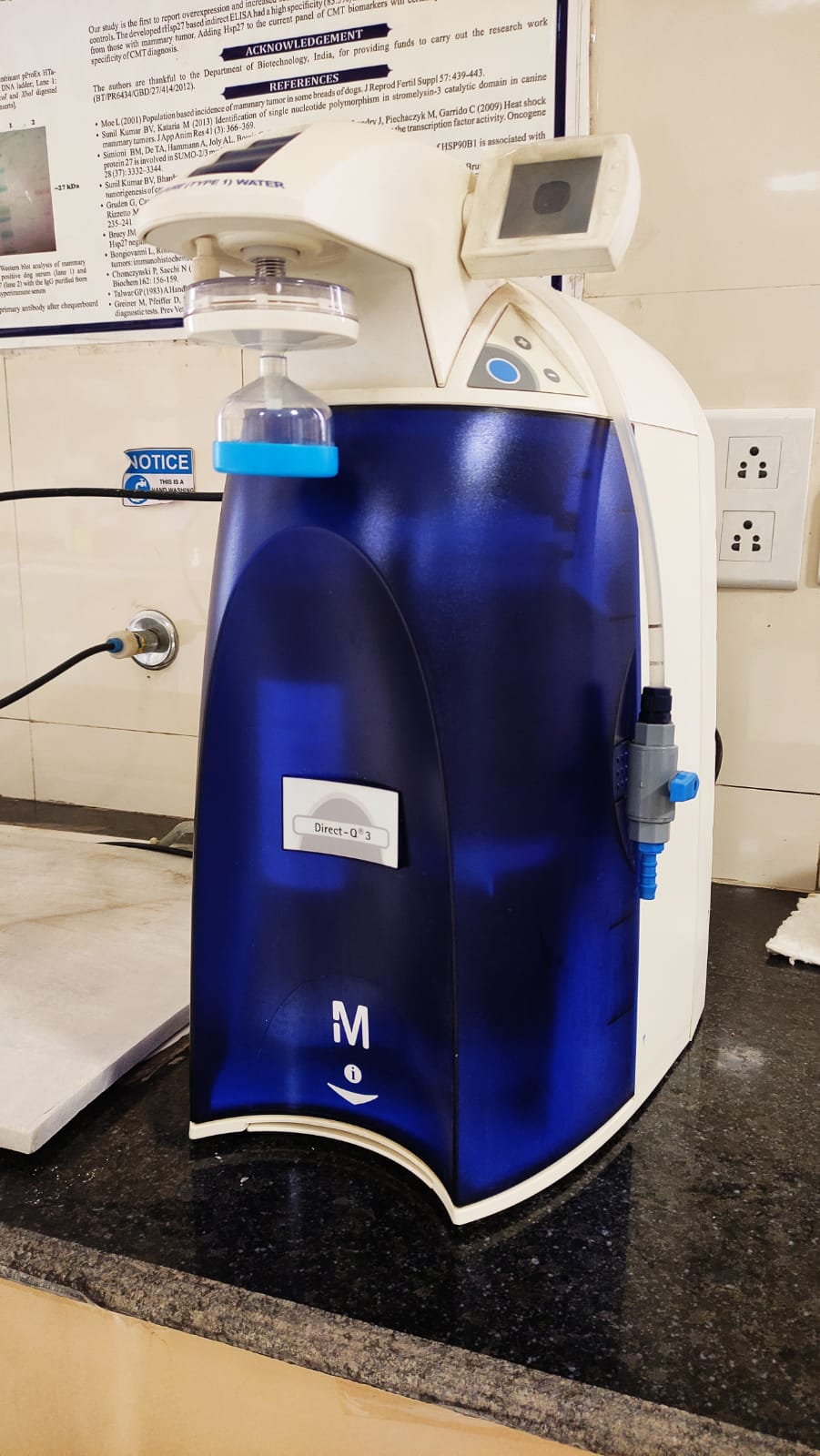
Incubators BOD/ CO2
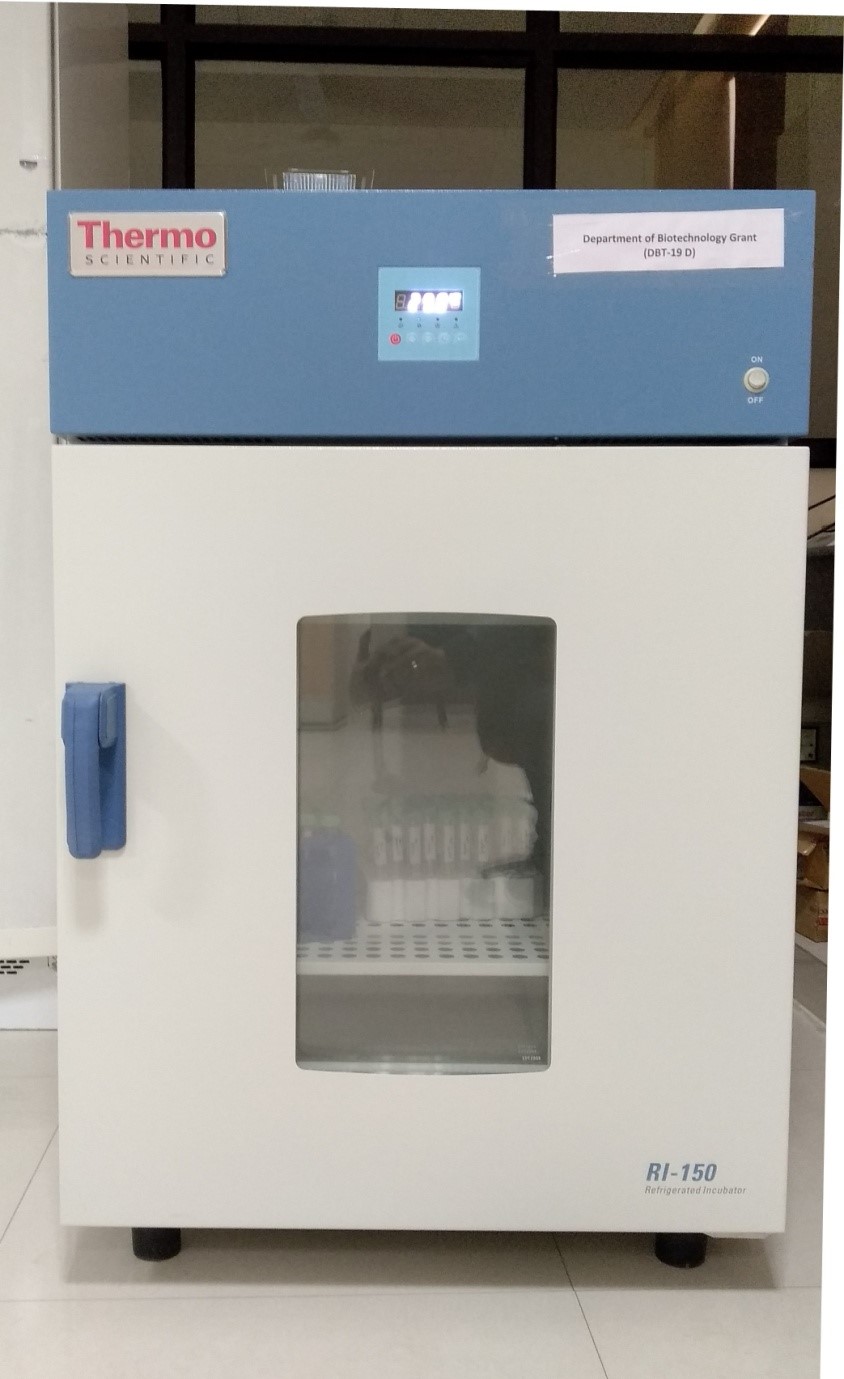
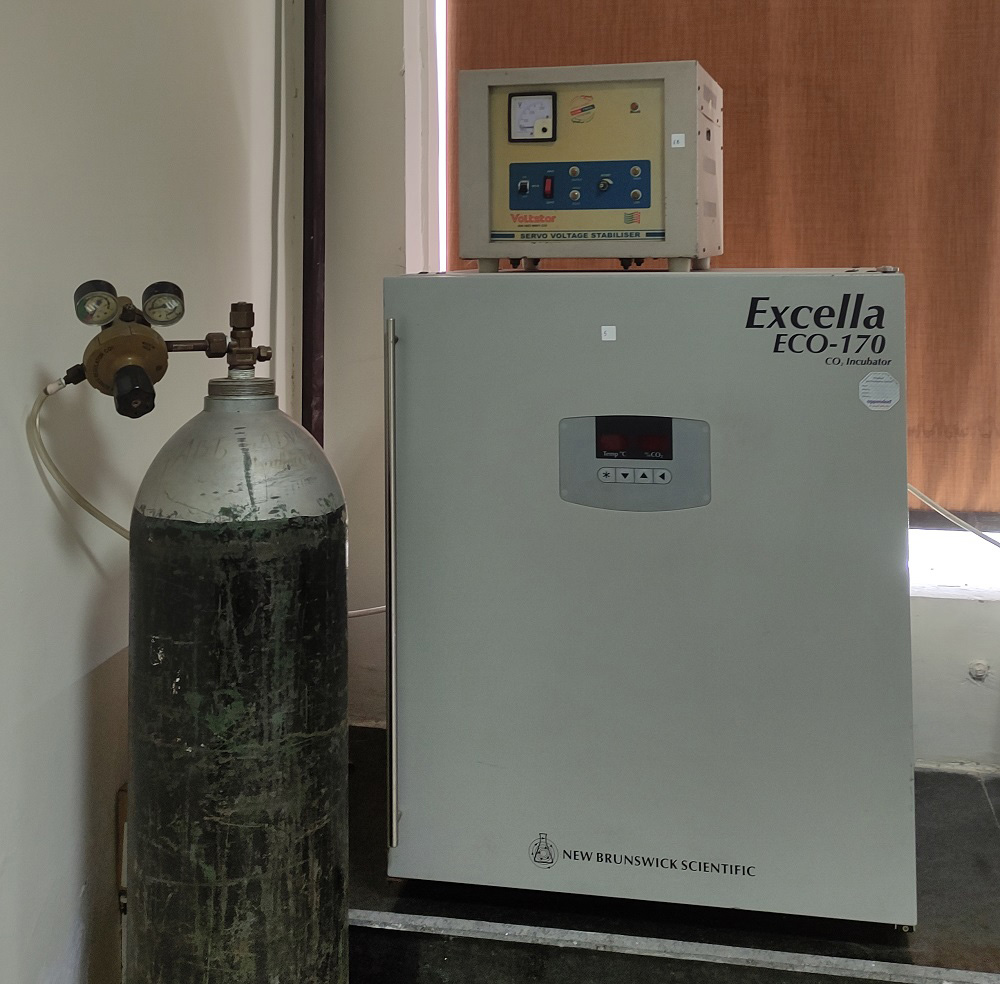
High Performance Work Station for data analysis
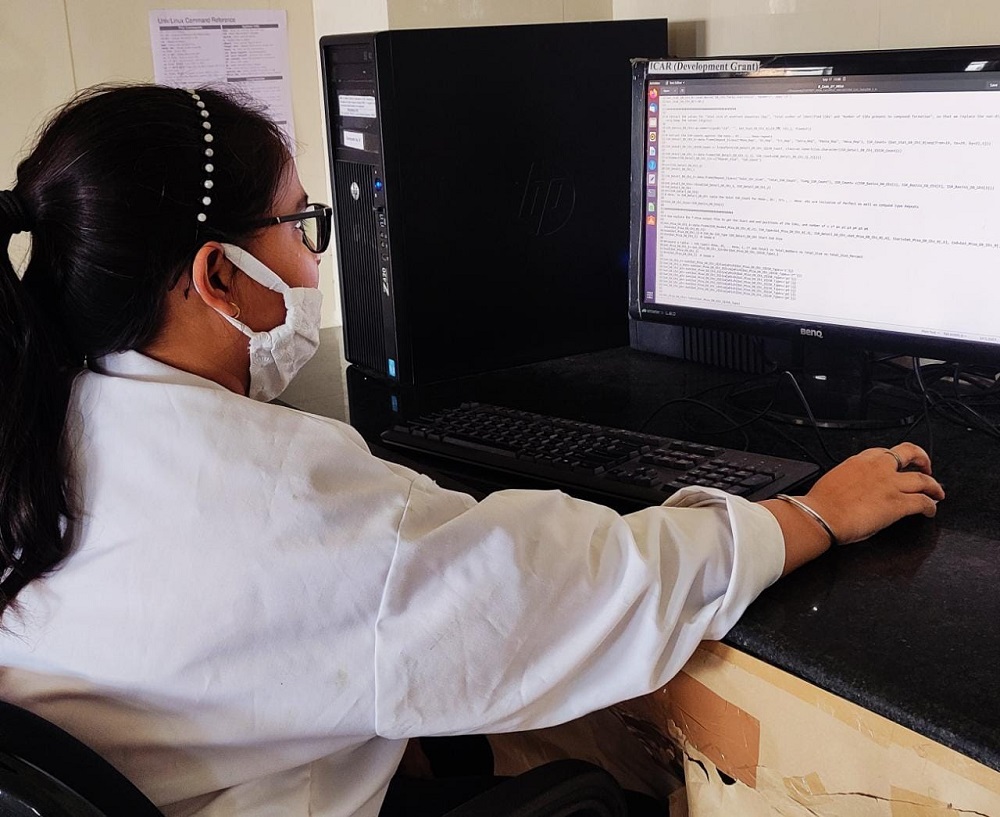
Programmable Strip Cutter
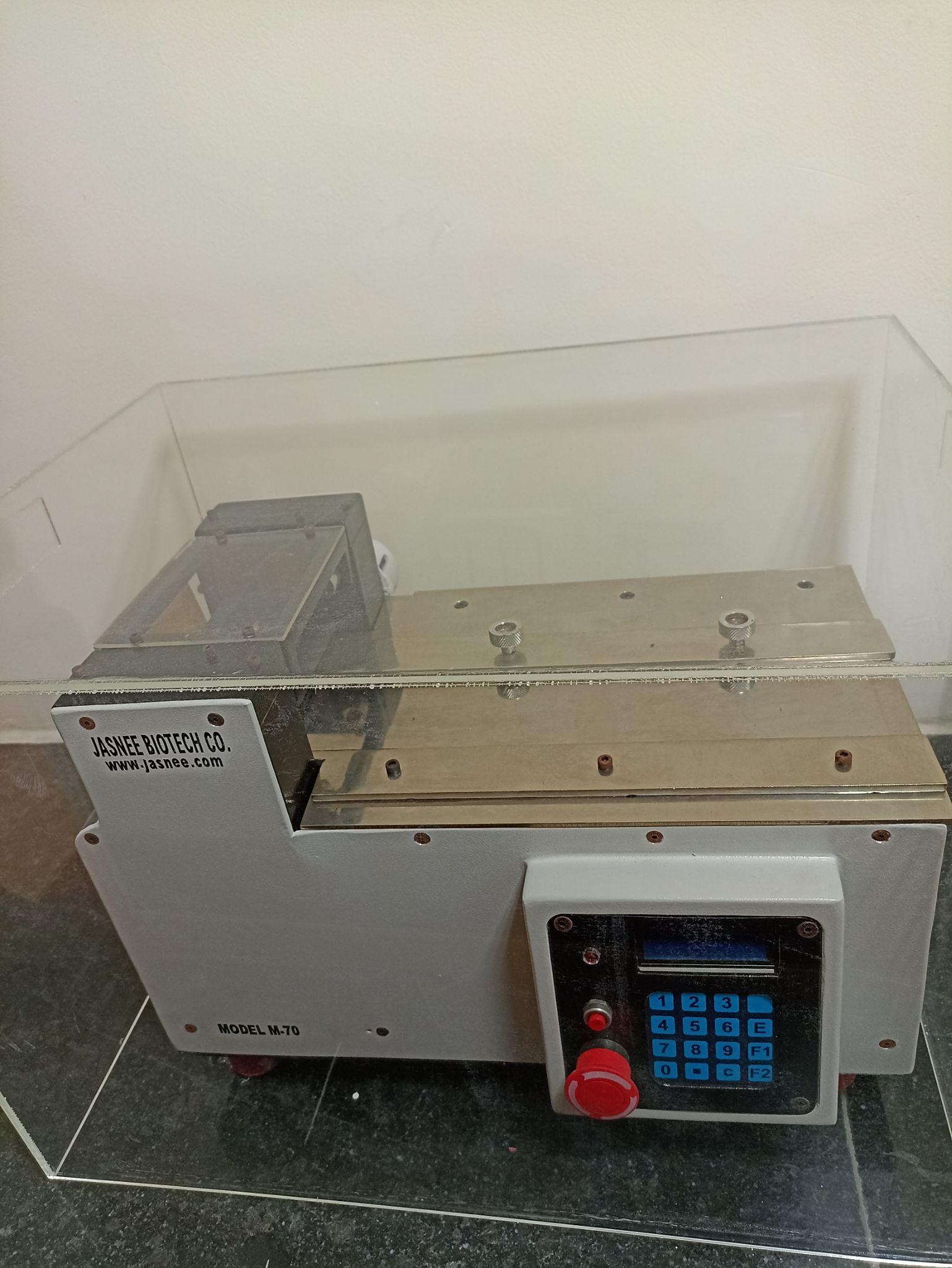
ClassII Type B2 Biosafety Cabinet
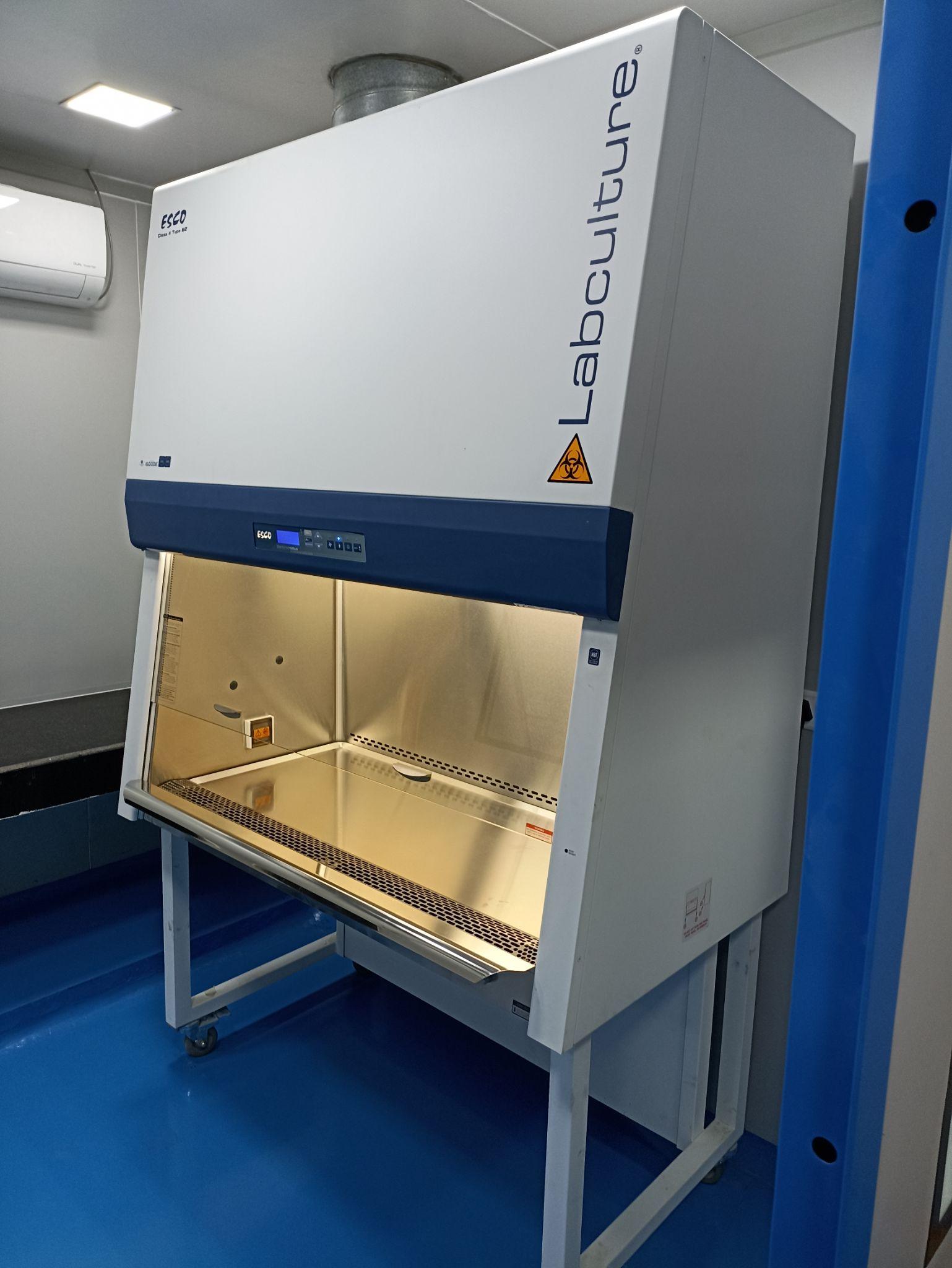
Oxford Nanopore Minion Sequencer:
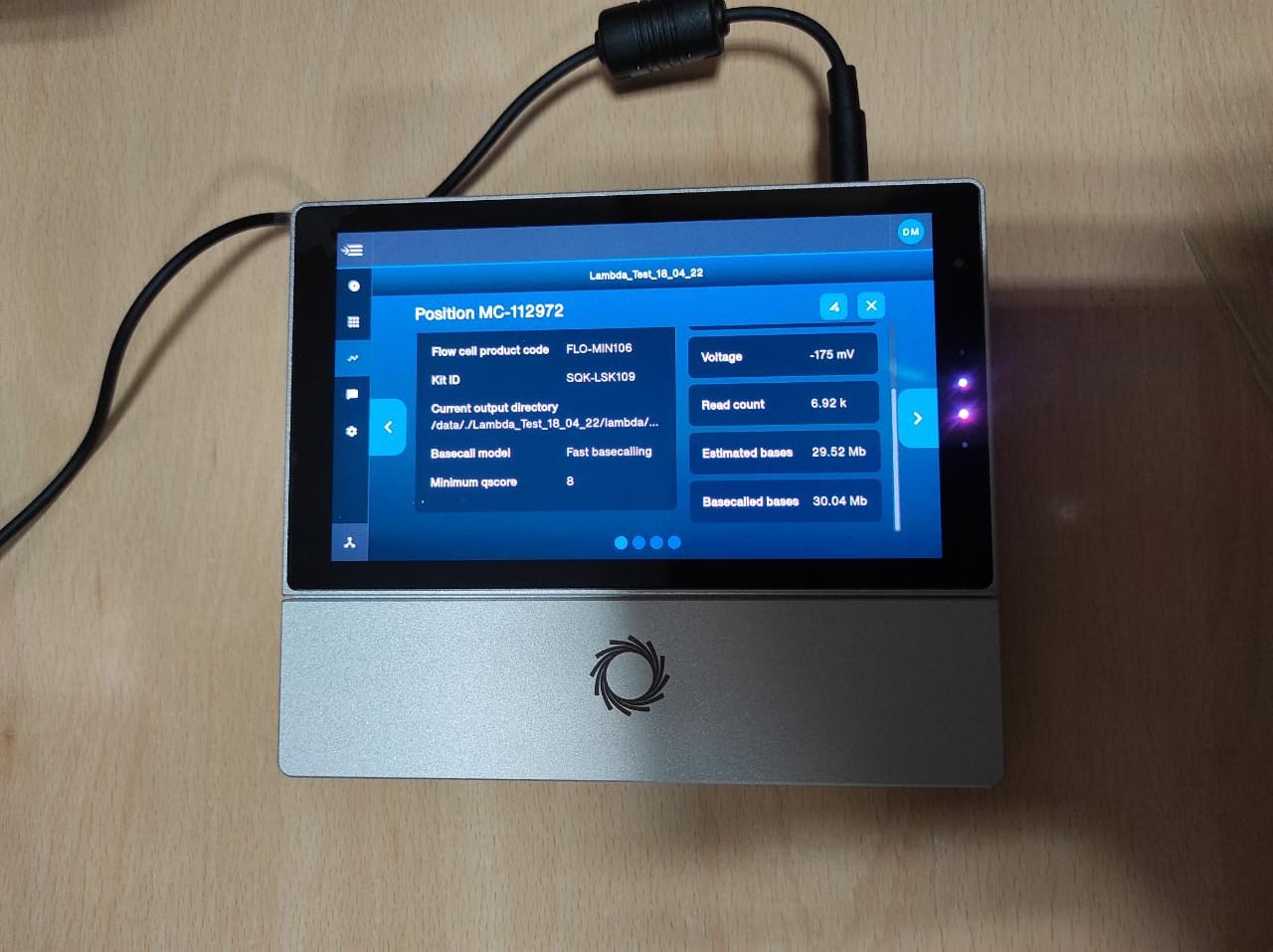
Gel Documentation System (Syngene)
.jpg)
Veriti 96-well PCR Machine (Applied Biosystems Inc.)
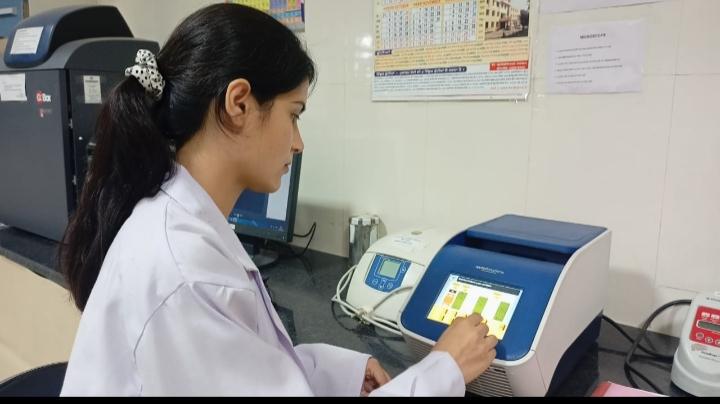
Refrigerated Centrifuge (Thermo Scientific)
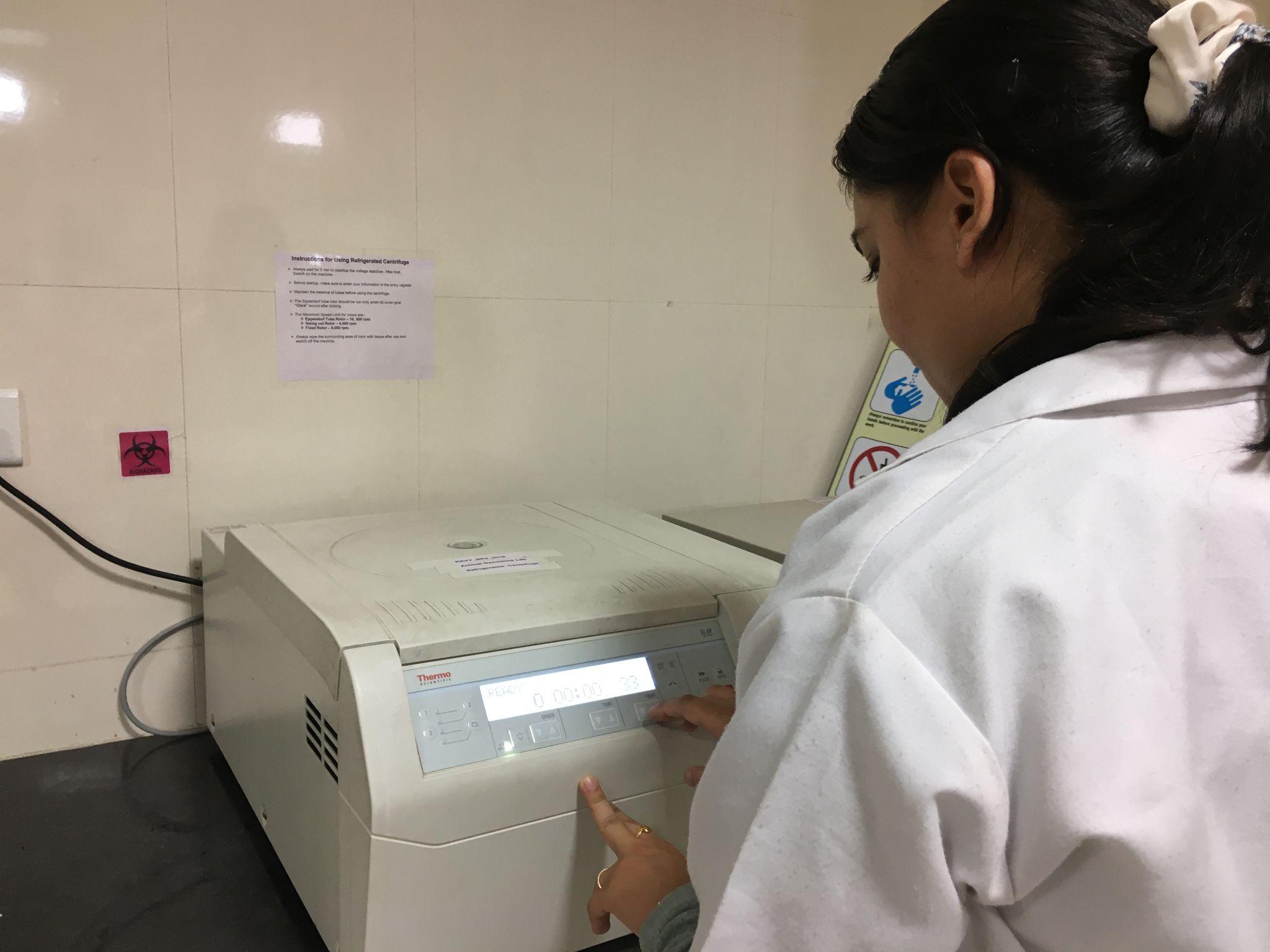
Upright Microscope with Imaging System
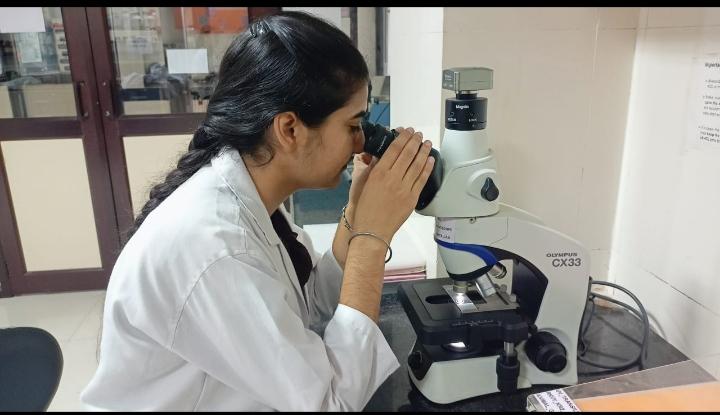
Faculty Detail

Dr. Balbir Bagicha Singh Dhaliwal
Designation : Professor-cum-Head
Contact Address : Department of Microbial and Environmental Biotechnology, College of Animal Biotechnology, Guru Angad Dev Veterinary & Animal Sciences University, Ludhiana -141004 Punjab (India)
Telephone : 0161-2414009
Mobile : +91 9216257392
Email : bbsdhaliwal@gadvasu.in bbsdhaliwal@gmail.com
Academic Credentials
- Bachelor of Veterinary Science and Animal Husbandry, PAU, Ludhiana, India.1999
- Master of Veterinary Science (Veterinary Public Health), Punjab Agricultural University (PAU), Ludhiana, India.2001
- PhD (Veterinary Public Health), College of Veterinary Sciences (GADVASU), India.2011
- MSc (Veterinary Epidemiology & Public Health) with Merit, Royal Veterinary College (UoL).2018
- Post-doctoral Fellowship, The University of Sydney (USYD).2019
Teaching appointments
- Professor cum Head, Department of Microbial & Environmental Biotechnology, College of Animal Biotechnology (GADVASU, India)Nov 2022 – Present
- Adjunct Professor in Veterinary Microbiology, Western College of Veterinary Medicine (UOS, Canada).Jul 2014 – Present
- Honorary Lecturer, Sydney School of Veterinary Science (USYD, Australia).May 2019– Present
Other appointments
- Research Fellow (January 2002 to May, 2004)
- Adjunct Professor, Veterinary Microbiology, University of Saskatchewan, Canada
Area of research
- Veterinary epidemiology, Zoonoses
Ongoing projects
|
Sr. No. |
Title |
Funding Agency |
Year |
|
1 |
Network project “National Surveillance Programme for Aquatic Animal Diseases (NSPAAD)- Phase II”, (Co-PI) |
ICAR, Govt. of India |
2022-25 |
|
2 |
Development of strategies for biosecurity measures to curtail important zoonotic diseases in Punjab, India (Co- principal investigator) |
Rashtriya krishi vikas yojana, Govt. of India |
2019-Present |
Research honours awards
- Endeavour research fellowship, Department of education and training, Australian Government (for Postdoctoral Research, 2018).
- Commonwealth distance learning fellowship, Commonwealth scholarship commission, UK (2017-2018)
- Merit certificate, MSc in veterinary epidemiology and public health, Royal veterinary college, University of London, 2018
- OneHealth ecoHealth scholarship 2016, International association for ecology and health, to present research at 4th international one health congress and 6th biennial congress, held at Melbourne, Australia
- Brazilian one health fellowship 2015, Sao Paulo state university, Brazil
- WAAVP scholarship funding 2013, World association for advancement of veterinary parasitology
- The flemish VLIR – UOS grant 2007, World association for advancement of veterinary parasitology
No of publications
| Research: 60 | Extension: 20 | Books: 04 | Manuals: 05 |
|---|
Publication
- Taaffe J., Sharma R., Parthiban A.B.R., Singh J., Kaur P., Singh B.B., Gill J.P.S., Gopal, D.R., Dhand N.K., Parekh F.K. 2023. One Health activities to reinforce intersectoral coordination at local levels in India. Frontiers in Public Health, 11, doi:10.3389/fpubh.2023.1041447. 1041447.
- Singh B.B., Ward M.P., Kostoulas P., Dhand N.K. 2023. Zoonosis–Why we should reconsider “Whats in a name?” Frontiers in Public Health, 11, doi:10.3389/fpubh.2023.1133330.
- K.P., Singh, B.B. 2022. Prevalence and risk factors associated with Japanese encephalitis virus infection in swine population of Assam, India. Asian Pacific Journal of Tropical Medicine, 15(11): 503-510. doi: 10.4103/1995-7645.359788
- Singh, B.B., Devleesschauwer, B., Khatkar, M.S., Lowerison, M., Singh, B., Dhand, N.K., Barkema H.W. 2022. Disability-adjusted life years (DALYs) due to the direct health impact of COVID-19 in India, 2020. Scientific Reports, 12, 2454. https://doi.org/10.1038/s41598-022-06505-z
- Tiwari HK, Proch V, Singh BB, Schemann K, Ward MP, Singh J, Gill JPS, Dhand NK. 2022. Brucellosis in India: Comparing exposure amongst veterinarians, para-veterinarians and animal handlers. One Health, 14, 100367.
- Meletis, E., Keshavamurthy, R., Singh Dhaliwal, B. B. S., Aulakh, R. S., Dhand, N., & Kostoulas, P. 2022. Evaluation of the sensitivity and specificity of three diagnostic tests for Coxiella burnetii infection in cattle and buffaloes in Punjab (India) using Bayesian latent class analysis. PloS one, 17(5), e0254303. https://doi.org/10.1371/journal.pone.0254303
- Thakur R, Sharma R, Aulakh RS, Gill JPS, Singh BB. 2022. Seroprevalence and risk factor investigation for the exposure of Toxoplasma gondii among veterinary personnel in Punjab, India. Comparative Immunology, Microbiology and Infectious Diseases, 80, 101739.
- Gill GS, Singh BB, Dhand NK, Aulakh RS, Ward MP, Brookes VJ. 2022. Stray dogs and public health: population estimation in Punjab, India. Veterinary Sciences, 9(2):75. doi: 10.3390/vetsci9020075
- Singh, BB, Ward, MP, Dhand, NK. 2021. Inherent virus characteristics and host range drive the zoonotic and emerging potential of viruses. Transboundary and Emerging Diseases. 2021; doi: 10.1111/tbed.14361
- FAO. 2021. Risk profile - Group B Streptococcus (GBS) – Streptococcus agalactiae sequence type (ST) 283 in freshwater fish. Bangkok. https://doi.org/10.4060/cb5067en (Contributor).


